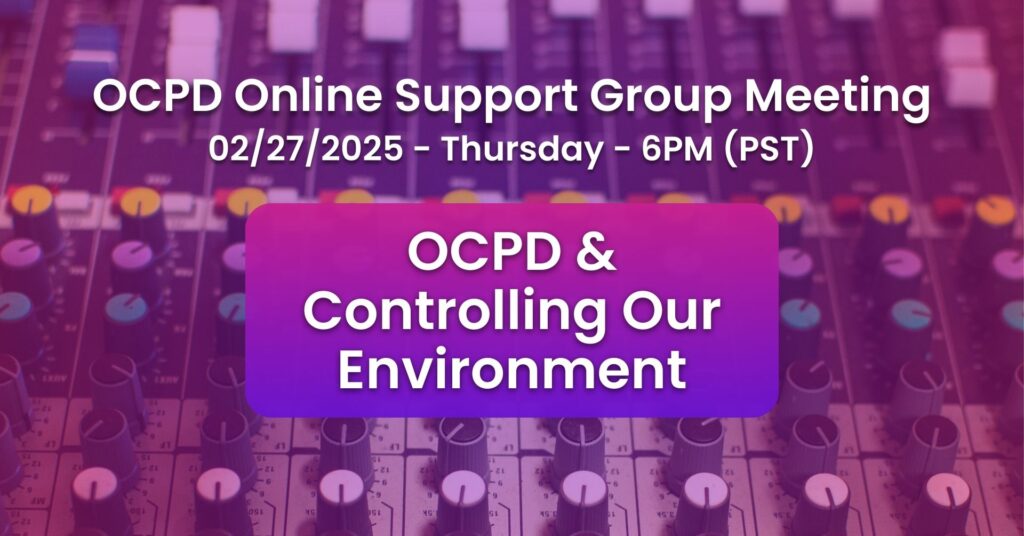For me this post feels roughly equivalent to what I would imagine an overworked parent feels like when they only have enough time and energy to pop a frozen TV dinner in the microwave for their child. I’d like to thank ChatGPT for once again spitting out a fairly coherent (perhaps even nutritious?) summary for me in lieu of my own thoughts on this topic as I lack the time!
ChatGPT: OCPD & Controlling Our Environment
People with Obsessive-Compulsive Personality Disorder (OCPD) have a strong need for order, structure, and control in their environment. Their preoccupation with perfectionism, rules, and organization drives them to create and maintain rigid systems in both their personal and professional lives. This need for control stems from an underlying fear of chaos, inefficiency, and unpredictability, which they perceive as stressful and overwhelming.
One of the primary ways individuals with OCPD control their environment is through excessive organization and planning. They often establish strict routines and schedules, ensuring that every aspect of their day follows a predetermined structure. Even minor deviations from these routines can cause distress, leading them to correct or redo tasks until they align with their high standards. They may spend excessive time planning tasks in meticulous detail, prioritizing structure over spontaneity.
Cleanliness and orderliness are also key areas of control. Many people with OCPD insist on keeping their spaces—whether at home, work, or elsewhere—immaculately arranged. Objects must be placed in a specific order, and any disruption can lead to frustration. They may also impose these standards on those around them, expecting others to maintain the same level of organization.
In work settings, they often struggle to delegate tasks, believing that only they can perform them correctly. Their fixation on efficiency and perfection may lead them to micromanage others, scrutinizing every detail to ensure it meets their exacting standards.
Ultimately, individuals with OCPD control their environment as a way to reduce anxiety and create a sense of security. However, their rigidity can cause difficulties in relationships, workplaces, and personal well-being, as their relentless pursuit of order can lead to frustration, stress, and conflict with others who do not share their need for absolute control.
Reflection Questions:
- What fears arise when things don’t go according to my plans or expectations?
- How does my need for control affect my relationships with others?
- What are some past situations where things didn’t go as planned but still turned out okay?
- What would happen if I allowed some flexibility in my routines? How might this benefit me?
- Am I imposing my standards on others, and how might this impact them?
- What is the worst-case scenario if something is done differently than how I prefer? Is it as bad as I imagine?
- How can I practice letting go in small ways each day?
- What deeper emotions (such as anxiety, fear, or insecurity) might be driving my need for control?
- How does my perfectionism contribute to stress or exhaustion in my life?
- What are some ways I can cultivate trust—both in myself and in others—to reduce my need to control everything?
Regularly reflecting on these questions can help someone with OCPD challenge rigid thinking patterns, develop greater self-awareness, and gradually embrace more flexibility in their environment and relationships.

![[Zoom Meeting] OCPD & Disgust 🤢](https://www.youmeandocpd.com/wp-content/uploads/2023/12/2023-12-14-OCPD-Disgust-1024x536.jpg)
![[Zoom Meeting] Reflecting on the Year 2023 📝🔍](https://www.youmeandocpd.com/wp-content/uploads/2023/12/2023-12-28-OCPD-Reflecting-on-the-Year-1024x536.jpg)